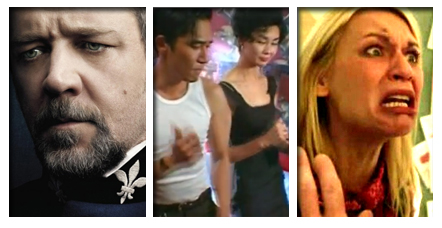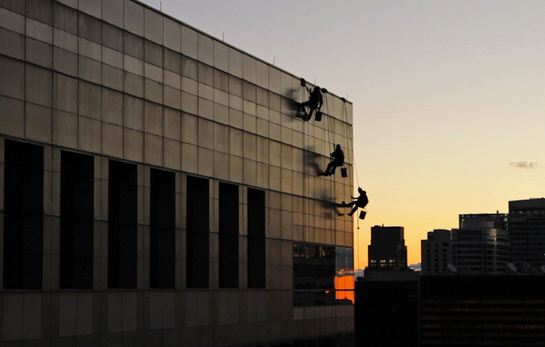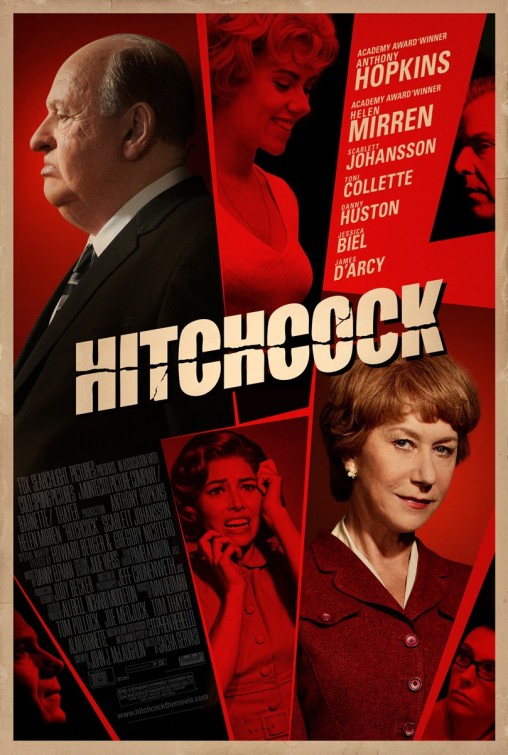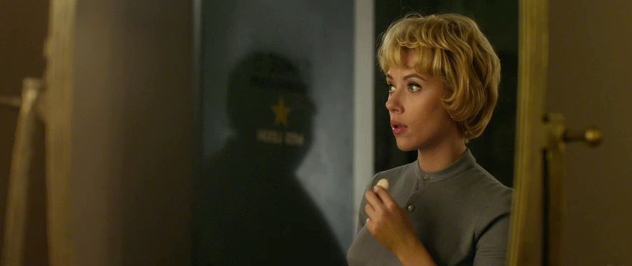NYFF: "Amour" & "No" Are Worthy Oscar Contenders
 Saturday, October 13, 2012 at 4:14PM
Saturday, October 13, 2012 at 4:14PM 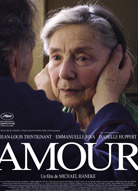
The Oscar race for Best Foreign Language Film is particularly exciting this year. We have more contenders than ever (71!) and so many strong films that the Academy's always controversial foreign language branch will undoubtedly piss various contingencies off when they announce the finalist list and then the nominees. They could lessen the size of the outcry each year if only their finalist list were 12 films long. It's so strange that they make it small enough (9 films) that those films which miss the nomination are in the minority and, thus, look particularly snubbed... numerically speaking. I've already raved about the Pinoy movie "Bwakaw", and here are two other worthy candidates for this annual honor. Don't miss them if you get a chance to see them
AMOUR (Austria)
“Ladies and Gentlemen, people die. That’s all you need to know.” This line, a recurring catchphrase from aging chanteuse Kiki (Justin Bond) in the now departed Kiki & Herb act, used to make me howl with laughter. It was a perfect punchline, soaked as it was in booze and tragicomic matter-of-factness. People do die. Death is a fact of life but we spend so much time denying it that it often feels completely abstract, an imagined fate rather than an eventual one. But as Anne (Emmanuelle Riva), the elderly woman at the heart of Michael Haneke’s new film reminds us:
Imagination and reality have little in common.”
At first Haneke keeps his customary distance. Were it not for early publicity or the disturbing pre-title sequence that shows us a woman's decomposing body surrounded by flowers, we wouldn't even know who the principle characters were during the post-title opening shot, a crowd watching a piano recital. As in the finale of Haneke's best film (Caché) the director doesn't help you decide where to look; it's your job to find the narrative. But one of the strongest directorial impulses in Amour is Haneke's barely perceptible but undeniably tightening focus on the couple. Each scene seems to bring us closer to Anne and Georges (Jean-Louis Trigninant), a happy well-off couple in their eighties who enjoy literature, cultural events, and visits from their daughter (Isabelle Huppert) and Anne's former student (the pianist Alexandre Tharaud who appears to be playing himself). The first close-ups of note, an utterly captivating shot/reverse shot of the couple as Anne all but vanishes from a conversation in progress, is the bomb dropping...
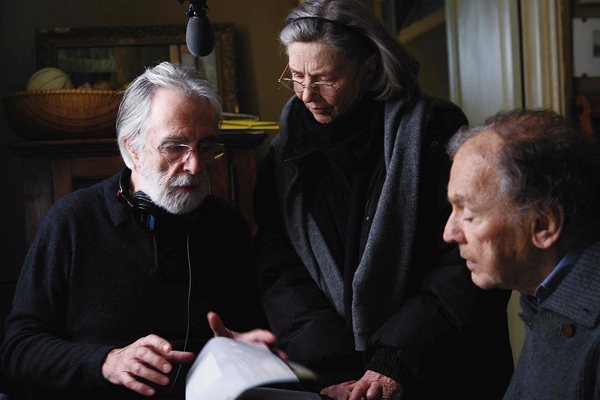 Michael Haneke with his actors on the set of "Amour"
Michael Haneke with his actors on the set of "Amour"





